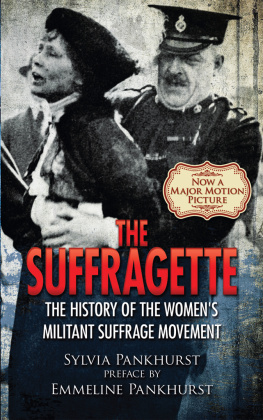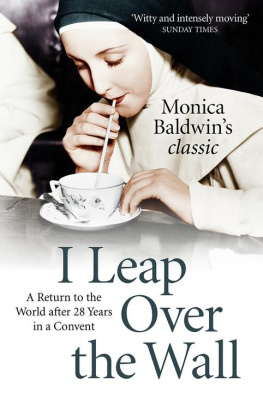First published by Zero Books, 2019
Zero Books is an imprint of John Hunt Publishing Ltd., No. 3 East St., Alresford, Hampshire SO24 9EE, UK
www.johnhuntpublishing.com
www.zero-books.net
For distributor details and how to order please visit the Ordering section on our website.
Text copyright: Marcel Cartier 2018
ISBN: 978 1 78904 012 8
978 1 78904 013 5 (ebook)
Library of Congress Control Number: 2018930208
All rights reserved. Except for brief quotations in critical articles or reviews, no part of this book may be reproduced in any manner without prior written permission from the publishers.
The rights of Marcel Cartier as author have been asserted in accordance with the Copyright, Designs and Patents Act 1988.
A CIP catalogue record for this book is available from the British Library.
Design: Stuart Davies
Printed and bound by CPI Group (UK) Ltd, Croydon, CR0 4YY, UK
We operate a distinctive and ethical publishing philosophy in all areas of our business, from our global network of authors to production and worldwide distribution.
Contents
In the midst of death, I am very close to life.
Mehmet Aksoy (Firaz Dag)
1985 eternal
Introduction
In Mehmets Footsteps
This book wasnt supposed to happen this way. In fact, if it wasnt for the sheer motivating force of one profoundly influential human being, this book wouldnt have happened at all. It was he who was supposed to pen the first words in this volume; to set the tone for the chapters to come, to paint the backdrop of the centuries-long struggle for Kurdish freedom, to give as only he could the most comprehensive yet simple account of what the Rojava Revolution is all about. It was this often painstaking approach of his in explaining this movement that made Mehmet Aksoy such a tour-de-force in the struggle for the liberation of his people.
When I first encountered Mehmet in September of 2014, it was at an event that we were both speaking at in London which was organized by the Tricontinental Anti-Imperialist Platform. This was an initiative that I was a part of that aimed to link international struggles in a spirit of mutual respect and understanding. While my talk dealt with the question of political prisoner turned modern day escaped slave Assata Shakur, Memo (Mehmet) was there to explain the process in northern Syria that by that time had been in motion for just over 2 years. As the Syrian state had been bogged down in conflict with a number of mostly reactionary insurgent groups in other parts of the country starting in 2011, it had ceded de-facto autonomy to the Kurdish forces of the Peoples and Women Protection Units (YPG and YPJ) in 2012 in much of the north of the country. At the time Mehmet gave his presentation, it was all the more significant as the forces of Daesh sometimes known as the Islamic State of Iraq and the Levant (ISIL, or ISIS) were on the move in Kobane, attempting to take the predominately Kurdish city on the Syria-Turkey border. What was unfolding was a battle that would soon draw comparisons to Stalingrad for its degree of heroism and human sacrifice, and ultimately for being a turning point in the war.
As Mehmet was introduced and took to the podium, I grabbed my camera and began filming his talk. On this day, I was juggling multiple tasks as an organizer, speaker and filmmaker. There were about a dozen speeches that were made over the course of roughly 3 hours. Yet, with all due respect to anyone else who may have spoken on that particular occasion and Im sure there were a number of great contributions its only Mehmets words that I actually remember vividly. There are a few reasons for this.
On the one hand, at that time I was extremely sceptical about the so-called Rojava Revolution. I had the tendency to view the war in Syria as nothing more than a proxy conflict between the United States, western and Gulf states that seemed to be infringing on Syrian sovereignty, on the one hand; and the Russian, Iranian and the Syrian state forces that looked to defend it. This meant that the notion that there was any possible third way that broke this dichotomy was something I was very dismissive of. I viewed the idea that Kurds who comprised maybe only 10 to 15 per cent of Syrias population were somehow the vanguard of a revolution within a counter-revolution as ludicrous. I didnt understand the dynamics of Syrian society, even though I was a self-professed revolutionary, and even though I read the media that conformed to my worldview on a daily basis, helping to feed my biases and what I had already deemed to be true. I was a Marxist, but increasingly rigid and dogmatic in my approach to what was a fluid and contradictory situation. This was one reason that Mehmets speech had such a profound impact on me. It began to stir something inside of me a feeling that perhaps I didnt have all the pieces to the puzzle when it came to understanding the Syrian war, despite me thinking I had already fitted them all neatly together long before.
The other reason that Mehmets contribution was so dynamic was his profoundly revolutionary character. He spoke with deep passion, clarity and in a way that showed he cared about reaching the audience. There was conviction, but no arrogance. There was also a very evident spirit of internationalism. He personally struck a chord in me in a huge way when he talked about Black Panther George Jacksons book Blood In My Eye being one of the formative texts in his political education and development. This surprised me, not only because I had expected that Mehmet would only talk about Kurdistan, but also because that book was an extremely important volume in my studies, one that I had read with huge enthusiasm when I was 17. Memos ability to link the Kurdish struggle with the black liberation movement in the United States was impressive. It also showed me that there was no way that the process he supported in northern Syria was some kind of pseudo-revolutionary puppet movement that was objectively tied to Washington and the Pentagon.
Over the months to come, the spark that Mehmet had lit began to mature into something much greater. To be sure, he had no idea that he had this kind of impact on the charting of my political future merely by deciding to accept the invitation to speak at a relatively small event in London attended by maybe 100 people. Im sure Im not the only person who had been so moved by his words that it has shaken their convictions, or at least somewhat challenged their preconceptions.
As the battle for Kobane unfolded and the YPG and YPJ ultimately declared victory over the forces of fascism, my interest in the Kurdish Freedom Movement only grew. I was already making plans to eventually make it to northern Syria. The question was what role I should play. Should I travel there as an internationalist fighter? As a journalist? As a solidarity activist? I decided that I would go in whatever capacity I could be most useful. As another Black Panther, Fred Hampton, once put it we learn best through observation and participation.
It would take me roughly another 2 years until I was able to at last make it to Rojava. The opportunity came in the form of an internationalist youth delegation from Europe. I would be among only three journalists on the trip, afforded a very unique and rare opportunity to visit the civil structures that had been set up over nearly 5 years of the revolution. This trip would initially take me to northern Iraq, then overland to northern Syria. Once there, I would spend a little over a month with unparalleled access to the organizations behind the fighters and the frontlines. I would get a sense of the kind of system and new society that those fighting and dying in the YPG and YPJ were shedding their blood for.










